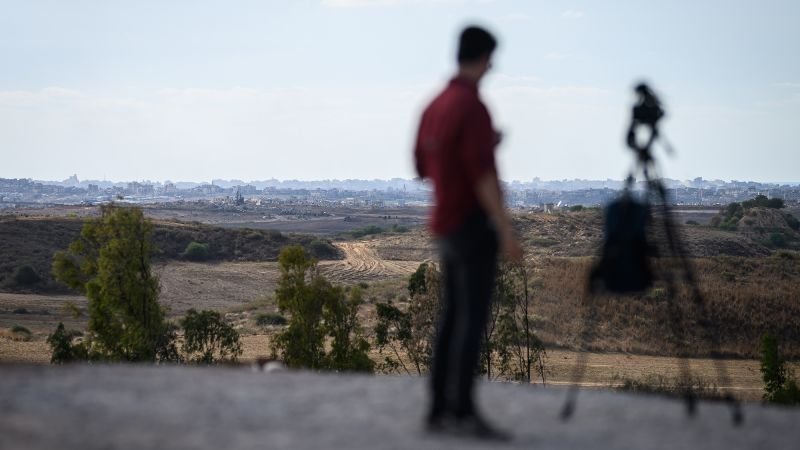The year 2023 proved to be intense for journalists in Israel and the Palestinian territories even before the horrifying events of October 7. Massive protests and violence against the Israeli government’s judicial overhaul had already rocked major cities. However, the terror attacks by Hamas on October 7 marked the deadliest day for Jews since the Holocaust, drawing global attention and additional foreign reporters to the region as the war in Gaza ensued and expanded.
Since the start of the devastating war, a record number of media workers, mostly Palestinian, have lost their lives due to Israeli military bombardment of Gaza. Journalists have faced physical threats, challenges in reporting from the warzone, internal newsroom pressure, and attacks over perceived bias or errors. The toll on media workers has been unprecedented, with at least 128 journalists killed since the beginning of the conflict, according to press freedom organizations.
The Israeli military has denied intentionally targeting journalists but stated they cannot guarantee safety in an active military zone. Accusations have been made against Palestinian journalists of involvement in terror attacks, which media organizations have denied vehemently. Many international news organizations evacuated staff from Gaza due to safety concerns, leaving behind a few brave Palestinian journalists who continue to report under harsh conditions in an active war zone, facing constant threats from Israeli bombardment.
Access for foreign journalists to report from Gaza has been limited due to a blockade by Israel, supported by Egypt. The Israeli military has taken reporters on controlled embeds, restricting their freedom of movement and interactions. International press has faced pressure in Israel, with Al Jazeera’s operations being shut down and increased aggression from Israeli authorities towards foreign journalists. Criticism and backlash over reporting on the conflict have been intense, with journalists facing challenges in displaying the complexities of the war without being accused of bias.
The war has caused intense polarization within the region, with biases impacting reporting and audience perception. The choice of words and framing of events has become highly contentious, with different sides pushing for their narratives. Journalists and media organizations have faced credibility issues and pressure from both Palestinian and Israeli perspectives. The mental and emotional toll on journalists covering the conflict has been significant, with many facing health challenges, stress, and personal struggles due to the relentless coverage of violence and criticism.
The pressures on journalists in the region, including Palestinian, Israeli, and foreign reporters, have been immense. Beyond physical threats, journalists have faced mental health challenges, stress, and the toll of witnessing and reporting on extreme violence daily. The effects of covering the war, from physical reactions to trauma, have taken a toll on journalists, highlighting the challenges and sacrifices made by those on the front lines of reporting in conflict zones.











